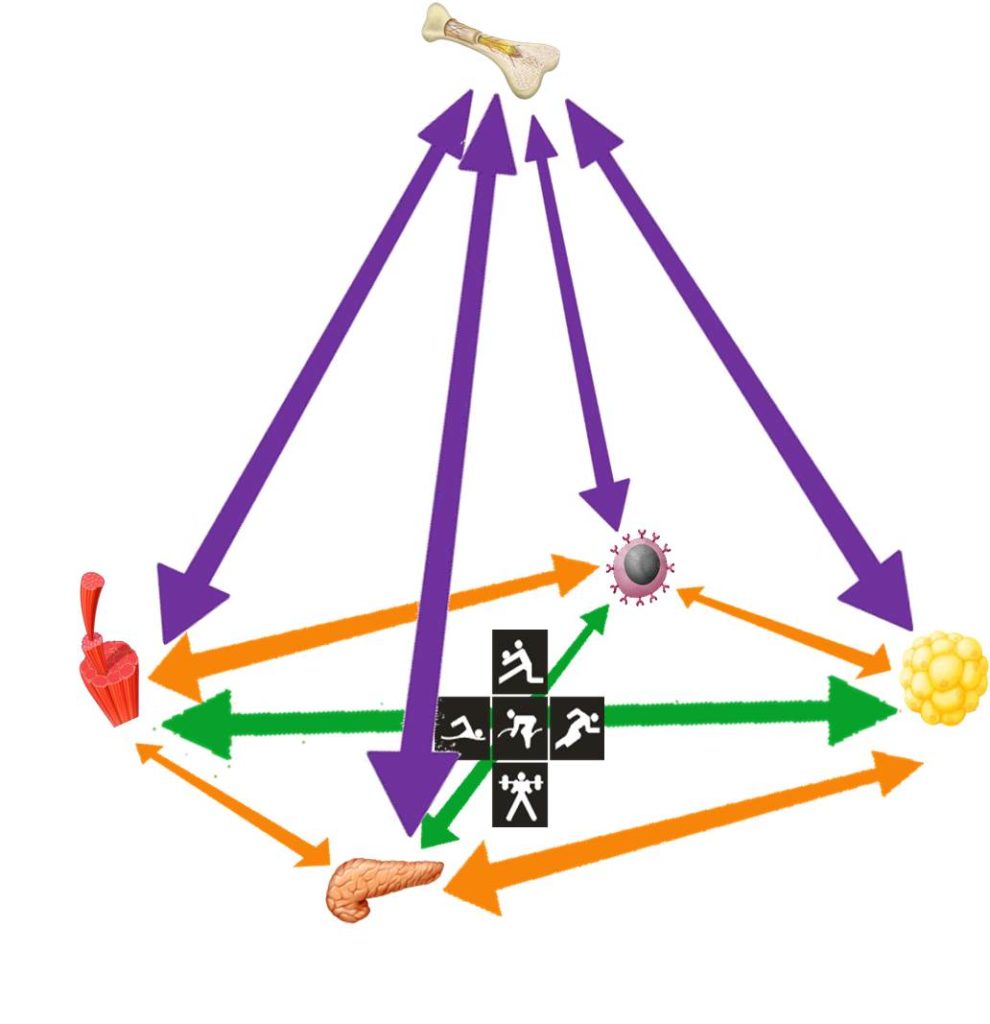EXPERIMENTAL BIOCHEMISTRY & MOLECULAR BIOLOGY (LEBMB)
Director: Dr. Giovanni Lombardi
Research Topics
Exercise, inflammation and metabolism

Physical activity is a well-known effective treatment for chronic inflammatory/metabolic diseases. Load onto the skeleton is also a fundamental stimulus for bone anabolism. Indeed, as we have demonstrated, the muscle traction alone in physical activity in absence of load is not able to sustain bone formation and, hence, can cause an imbalance towards resorption. The metabolic activation of bone formation is associated with the release, among the other metabolites, of osteocalcin whose circulating levels have been associated with a better metabolic profile. More generally, a better bone metabolic profile is associate with an improved whole-body metabolism and hence, based on these assumptions, we aim at understanding how different kind of physical activity, sharing a comparable level of energy expenditure but different in terms of loading onto the skeleton, modify the metabolic-inflammatory profile.
Furthermore, exercise (moderate-to-high intensity) is known to induce inflammation by activation of the immune system but also the skeletal muscle (production of myokines) and the adipose tissue (production of adipokines). These key mediators/hormones are able to modify the whole-body metabolism and are, in turn, responsible for the metabolic response to the exercise.
Within this wide topic, several national and international co-operations are currently active and, besides the strict collaboration with several groups, with Prof. Ewa Ziemann of the Akademia Wychowania Fizycznego i Sportu of Gdańsk, Poland, Prof. Jiexiu Zhao of the Chinese Institute of Sport Science, Beijing, China, Dr. Fabian-Sanchis Gomar of the Research Institute Hospital 12 de Octubre (“i+12”), Madrid, Spain.
